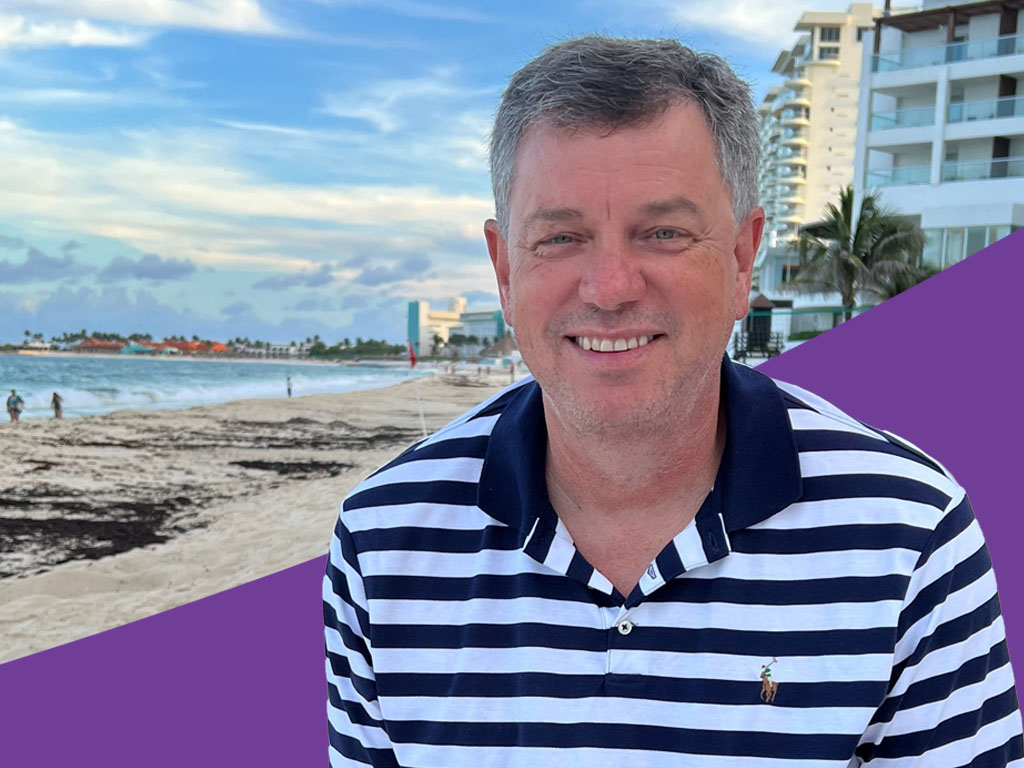Show Menu
Choose Your Location
You are now leaving the Viatris page for a Viatris affiliate site or third party site that is solely responsible for its content, including its compliance with guidelines applicable in certain geographies. Links to Viatris affiliate sites and third party sites are provided as a resource to our visitors and may not be governed by the same regulatory requirements applicable to this site and unaffiliated third party sites are subject to their own terms and data protection notices and practices. Moreover, if their third party site is subject to other country laws, regulatory requirements, data protection requirements or medical practices may differ between countries and the information provided therein may not be suitable for use in your country.

Patient Inspiration
By: Niki Kapsambelis
September 14, 2023
In hindsight, it was the incongruous perfection of the day that he remembers so vividly: a bright, sunny afternoon in April 1983, fresh with the promise of spring in the Rocky Mountains.
Barrett Jeffers was 17, a month away from graduating high school in Fort Collins, Colorado. He drove home after classes finished, free from the obligations of sports practice and other after-school activities.
Click here watch Barrett talk about his journey.
“Everything seemed normal until I actually pulled into the driveway,” recalled Barrett. Then he noticed a car belonging to his aunt and uncle. They should have been at work. Instantly, he realized something was off.
When Barrett went into his back yard, he found his mother sitting on a rock near her garden, crying uncontrollably.
“That’s when I got the news that my father had passed of a heart attack. He died when he was 41 years old. It was absolutely devastating, and shock hit me,” said Barrett, who is now Viatris’ Head of Medical Therapeutic Areas Implementation for Japan, Australia, New Zealand and Emerging Markets.
It fell to Barrett to go find his little brother, who was down the street after finishing his day at elementary school.
“It’s one of the hardest things, up to that stage in my life, that I’d ever done: and that’s to tell your younger brother that you’re never going to see your father again,” Barrett said. “It was a heart-wrenching day that still is vivid in my memory today.”
Homer Alexander “Alex” Jeffers Jr.’s early death was part of a devastating family legacy that Barrett feared he would inherit. Barrett’s grandfather and uncle also died from cardiovascular disease at early ages. For generations, in fact, no Jeffers male had survived into their 60s, and for several years, Barrett believed there was nothing he could do to prevent the same thing from happening to him.
“I actually had a mindset that it’s just our genetics. What’s the point?” he recalled thinking. “This is just the hand that I was dealt. And so I didn’t really, to be honest with you, think I could change it.”
He shared his story as part of Patient Academy, a collaboration between Viatris and the International Alliance of Patients’ Organizations that seeks to empower people in managing their own health conditions by providing information on a wide array of topics.
The pivotal moment happened when Barrett turned 41, the same age his father had been when he died.
“It really changed my perspective on everything, because I mean, I didn’t realize how young he really was when he passed,” Barrett said. He recalled how, at the time his father died, they had just started interacting as adults – working on calculus homework together, having more in-depth conversations. Alex Jeffers had a doctorate in statistics; Barrett followed closely in his footsteps, earning a Ph.D. in biostatistics.
Barrett’s career ultimately specialized in cardiovascular disease, and it was through this work that he learned that genetics were not the final word in his future. In fact, there were many risk factors he could change. Gradually, he began to realize: “You can actually do something about it. It’s not predestined,” he said.
From that point on, Barrett decided to do the complete opposite of nothing: he would do everything he possibly could to improve his cardiac health. He consulted his doctor; he became more active and followed a heart-healthy diet, and he started taking medication to lower his cholesterol and blood pressure. A self-described “religious step counter,” he strives to hit 10,000 steps each day.
By monitoring his cholesterol levels and taking his blood pressure twice daily, Barrett is able to track his health status.
“If you don’t understand your numbers, it’s hard to truly have an impact,” he said. “Measuring your blood pressure, for example, is one of the easiest things you can do.”
Perhaps most meaningful to him is that he has been able to share what he has learned with his family members so that they, too, can apply the pieces that work best for them to play a more active role in managing their own health. They are taking proactive steps to stay healthy, and his children and other members of the next generation are learning from an early age the importance of forming good habits.
“In our family, that kind of means a lot, so it’s nice to see that we as a generation are all going much further than others have,” Barrett said. “I think part of that is just talking with each other, the experiences that we’ve had and trying to make certain that we can control it and understand that it’s in our power to do that.”